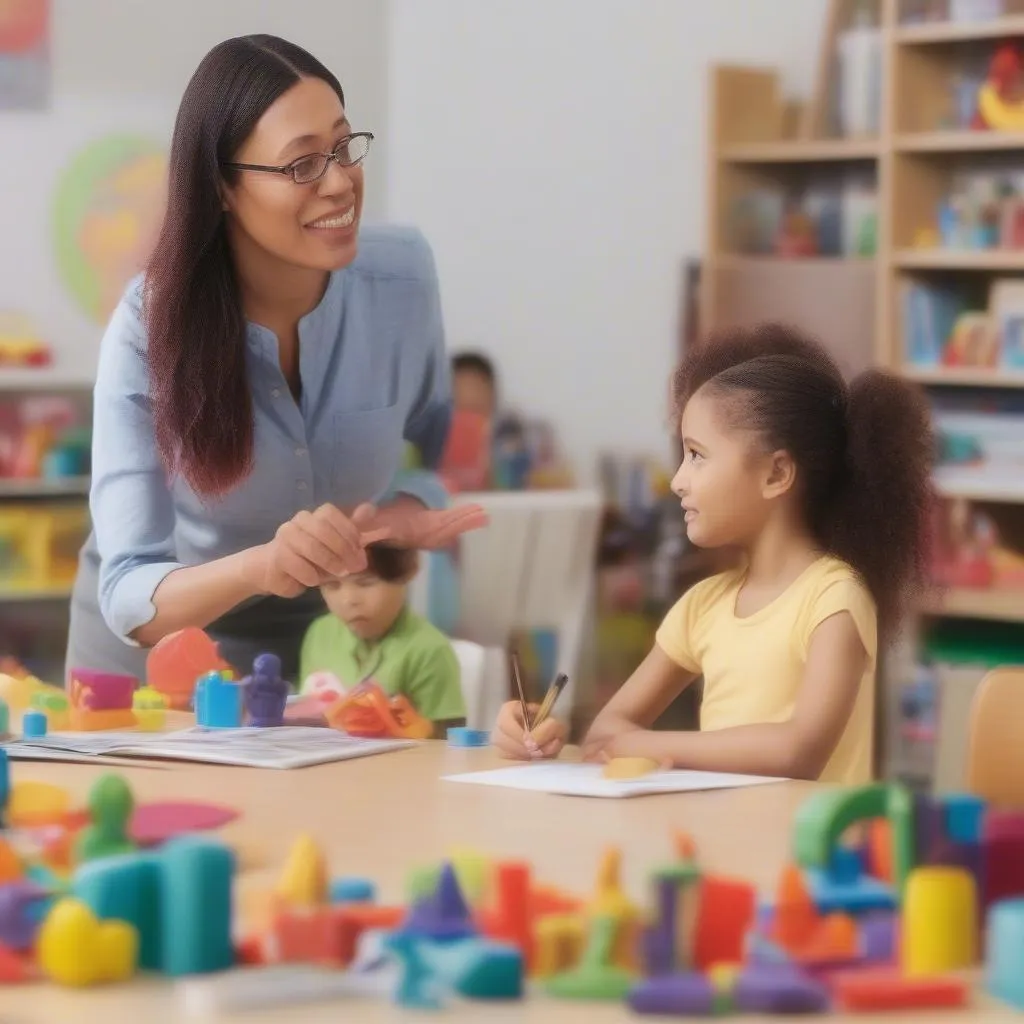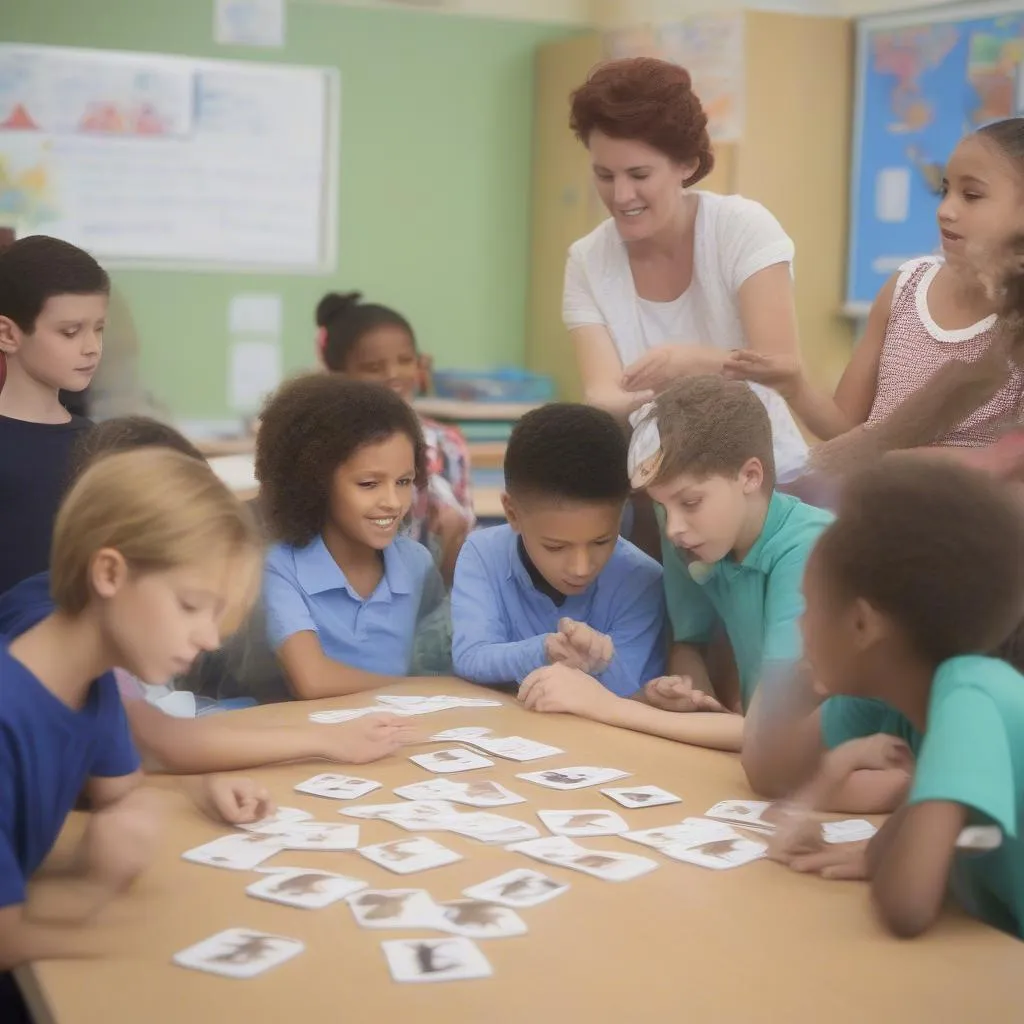“Honey, do you know if sparrows can fly?” – A seemingly simple question, yet it holds so much fascination in a child’s intellectual journey.
True or false questions for preschoolers, also known as true or false games, are a widely trusted and used early education method by parents and teachers. This is because they not only help preschoolers become familiar with basic knowledge but also train logical thinking, quick reflexes, and confidence in making decisions.
Why are true or false questions important?
According to Mr. Nguyen Van Minh, an early childhood education expert with over 20 years of experience, “True or false questions act as a bridge between the imaginary world and the real world of young children. By answering questions, children learn to distinguish between right and wrong, train their reasoning skills, and enhance concentration.”
Specifically, true or false questions offer the following benefits:
1. Develop Logical Thinking
True or false questions often require children to think, analyze information, and make accurate choices. This helps them develop logical thinking skills, distinguishing between fact and fiction.
Example: When asking a child, “Is the sun green?” – The child needs to think, recall the color of the sun to give the correct answer “No.”
2. Enhance Reflex Skills
True or false games help children react quickly to questions, training reflexes and the ability to make decisions in a short time.
Example: In the game “Who’s Faster?”, the teacher can ask, “Do chickens crow in the evening?” and children need to think and answer “False” quickly.
3. Foster Curiosity and Love for Learning
True or false questions are often posed in a fun way, creating excitement and curiosity for young children. From there, children will want to learn more about the world around them, enhancing their curiosity and love for exploration.
Example: When a teacher asks, “Can elephants fly in the sky?”, children will be curious to find out if elephants can fly or not, thereby learning knowledge about animals and how they move.
4. Train Communication Skills
True or false questions are often asked in group activities, helping children practice communication skills, the ability to express ideas, and persuade others.
Example: In the “True or False Challenge” game, children can discuss together, make arguments to prove their answers.
The Secret of True or False Questions for Preschoolers
“True or false questions are an effective tool, but they need to be used skillfully to suit the age and learning ability of children,” shared Ms. Hoang Thi Thu Trang, a preschool teacher with over 10 years of experience.
1. Choose Appropriate Questions
It is necessary to choose questions that match children’s knowledge and cognitive abilities, avoiding questions that are too difficult or too easy that make children bored.
Example: For 3-year-olds, simple questions should be used such as “Does a cat have 4 legs?” or “Is bread sweet?”
2. Use Illustrative Images
Illustrative images help children easily understand the questions and increase interest in participating in the game.
Example: When asking “Does a banana tree have green fruit?”, you can use an illustrative image of a banana tree with yellow fruit.
3. Create a Fun Atmosphere
It is necessary to create a fun and comfortable atmosphere so that children can confidently answer questions, avoiding pressure or punishment when children answer incorrectly.
Example: Praise children when they answer correctly and encourage them when they answer incorrectly.
Some good true or false questions for preschoolers:
QUESTIONS ABOUT ANIMALS:
- Can dogs fly?
- Do fish live underwater?
- Do sparrows have blue feathers?
- Can elephants fly?
- Can chickens swim?
- Can dolphins fly?
- Do crocodiles live underwater?
- Do turtles have 4 legs?
- Do mice have tails?
QUESTIONS ABOUT PLANTS:
- Does a banana tree have red fruit?
- Are roses purple?
- Does a grapefruit tree have green fruit?
- Are oranges sour?
- Does a jackfruit tree have yellow fruit?
- Are apples sweet?
- Does a banana tree have green leaves?
- Are sunflowers yellow?
- Do chrysanthemums have a fragrance?
QUESTIONS ABOUT HUMANS:
- Can adults fly?
- Can children drive cars?
- Do humans have two legs?
- Are human eyes blue?
- Are human ears used for smelling?
- Is the human mouth used for breathing?
- Can human hair grow up to 10 meters long?
- Is the human nose used for smelling?
- Are human hands used for grasping?
QUESTIONS ABOUT THE ENVIRONMENT:
- Is the sun green?
- Is the Earth round?
- Is seawater sweet?
- Is rain green?
- Is the sky black?
- Can green plants help us breathe?
- Do humans need water to live?
- Is the moon bigger than the Earth?
- Does the sun rise in the east?
Expert Advice:
According to Ms. Nguyen Thi Lan, a preschool teacher with many years of experience, “To make true or false questions bring optimal educational effectiveness, you should combine the game with other activities such as singing, storytelling, drawing, etc., to help children learn in a fun and exciting way.”
Conclusion
True or false questions for preschoolers are an effective educational tool to help children develop intelligence, train logical thinking, and enhance reflex skills. Let’s create fun and beneficial true or false games to help preschoolers explore the world around them in an interesting and effective way!
Leave a comment below to share interesting true or false questions that you often use for your little ones. Or you can also contact us via phone number: 0372999999 or come to the address: 234 Hao Nam, Hanoi. We have a 24/7 customer care team ready to answer all your questions.
 A child happily answers a true or false question in a preschool setting
A child happily answers a true or false question in a preschool setting
 Preschool children engaging in a true or false question game with their teacher
Preschool children engaging in a true or false question game with their teacher